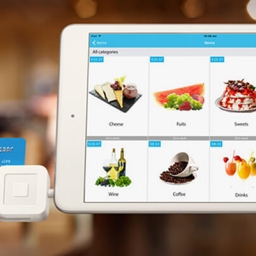
As a small business owner, running a company can be challenging in many ways. You probably wish there was more than 24 hours in a day just to get things done. No doubt you’ve heard the term “Time is money” – and it couldn’t be more true. For every minute you or one of your staff wastes, your business is paying for it. That’s why we’ve come up with some tips for you to manage your time more efficiently at work.
Organise and Prioritise
Firstly, it is important to come up with a plan for the day and the rest of the week. Grab your agenda or your management tool and start creating a ‘to do’ list and following tasks to keep track of your progress. If you don’t set goals at this most basic level, how will you know if you’ve achieved them and whether you did it efficiently?
To make things easier on yourself, identify and start with the simplest tasks so you can feel productive immediately and ready for the harder ones. Also take note of problems you find along the way, as they might help you find common patterns in other tasks.
Finally, identify the time of the day which you are more productive, so you can adapt your day/plan to suit you better. Recognising when you are more productive will help you complete tasks quicker with less effort.
Tools recommended: Wunderlist, Evernote, FreedCamp, Asana
Reduce Time wasters
When you’re busy in the office working or on the road selling, it’s easy for other things to creep in and pile up on you for when you return. Missed phone calls and voice mails need to be returned. Your overflowing inbox needs sorting and replies drafted. The list goes on.
Here are some tips that will help you and your team keep focused by reducing time wasters:
- A phone call or face-to-face conversation could be a more efficient approach instead of responding emails.
- Delegate appropriate tasks to a team member. Evaluate your team resources and learn to delegate to the most suitable person to improve productivity (some tasks that are very time-consuming might take others with the right skills very little time to complete).
- Block social media pop-up messages or notifications from your accounts while working unless you make use of these tools to generate business.
- Run meetings following timetables. Share relevant information so meeting attendees can be prepared and more productive during meetings.
Use Management tools
As a small business owner, you sure have a lot of tasks to manage on your own and very little resources to delegate. Being well organised and making use of the right tools will ensure you maximise your productivity.
Today there are many software tools that can help you accomplish tasks faster, communicate with your team members more effectively and keep informed about how your projects are tracking.
Recommended platforms: CRMs, Slack, Trello, Zappier, Basecamp, Workplace by Facebook.
Replace the paperwork and double handling
Last (but certainly not least), we recommend reducing paperwork and double handling wherever possible, and replacing it with an easy to use business system.
If you are in the business of selling things (doesn’t every business do that?) SalesIn can remove the paperwork and streamline this part of your day. Whether you have sales reps on the road selling, or your customers order directly from you, SalesIn has got you covered.
SalesIn consists of an app for your iPad and iPhone so that your sales reps or field service team can do their job quicker and better. A web based login is available for your office team to use the same system to enter phone or emailed orders, check what is happening in the field and to run reports. And finally, SalesIn B2B provides an online ordering system for your customers, giving them a way to place orders with you when it suits them, instead of calling or emailing you. SalesIn B2B integrates directly into your own website and you can even style it to suit your brand!
Only SalesIn has all the right features to provide you with the ability to handle quotes, orders, invoices, handle inventory stock levels, show off your product images, email notifications, order history and much more. Having these features is only half the solution though – the remainder is seamlessly integrating all of this data with your existing accounting system. And yes, SalesIn integrates with Xero, MYOB, QuickBooks, Reckon, Fishbowl Inventory, Square and many more products to keep your critical business data flowing 24/7.
Give it a try and start maximising your productivity today.









